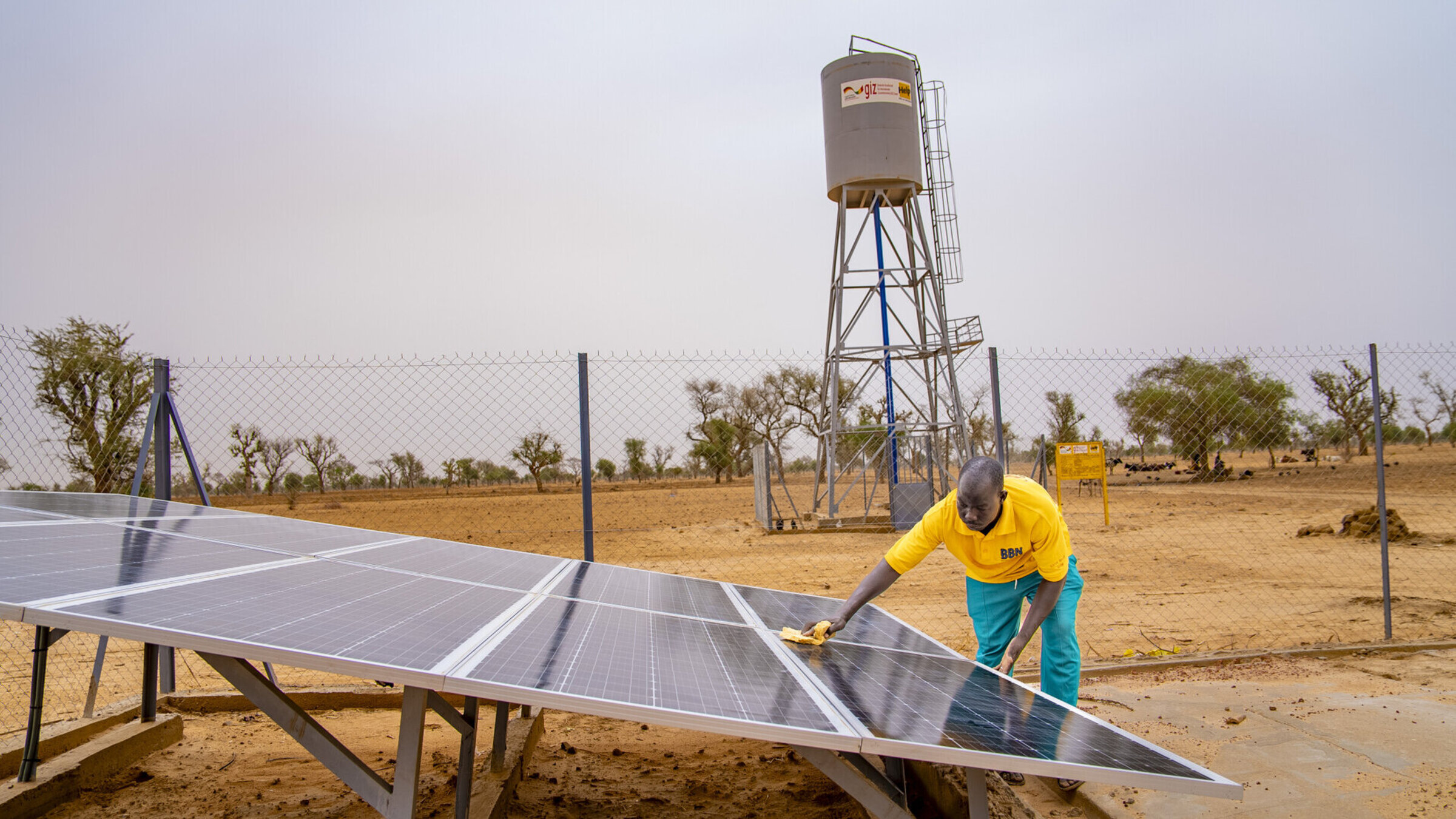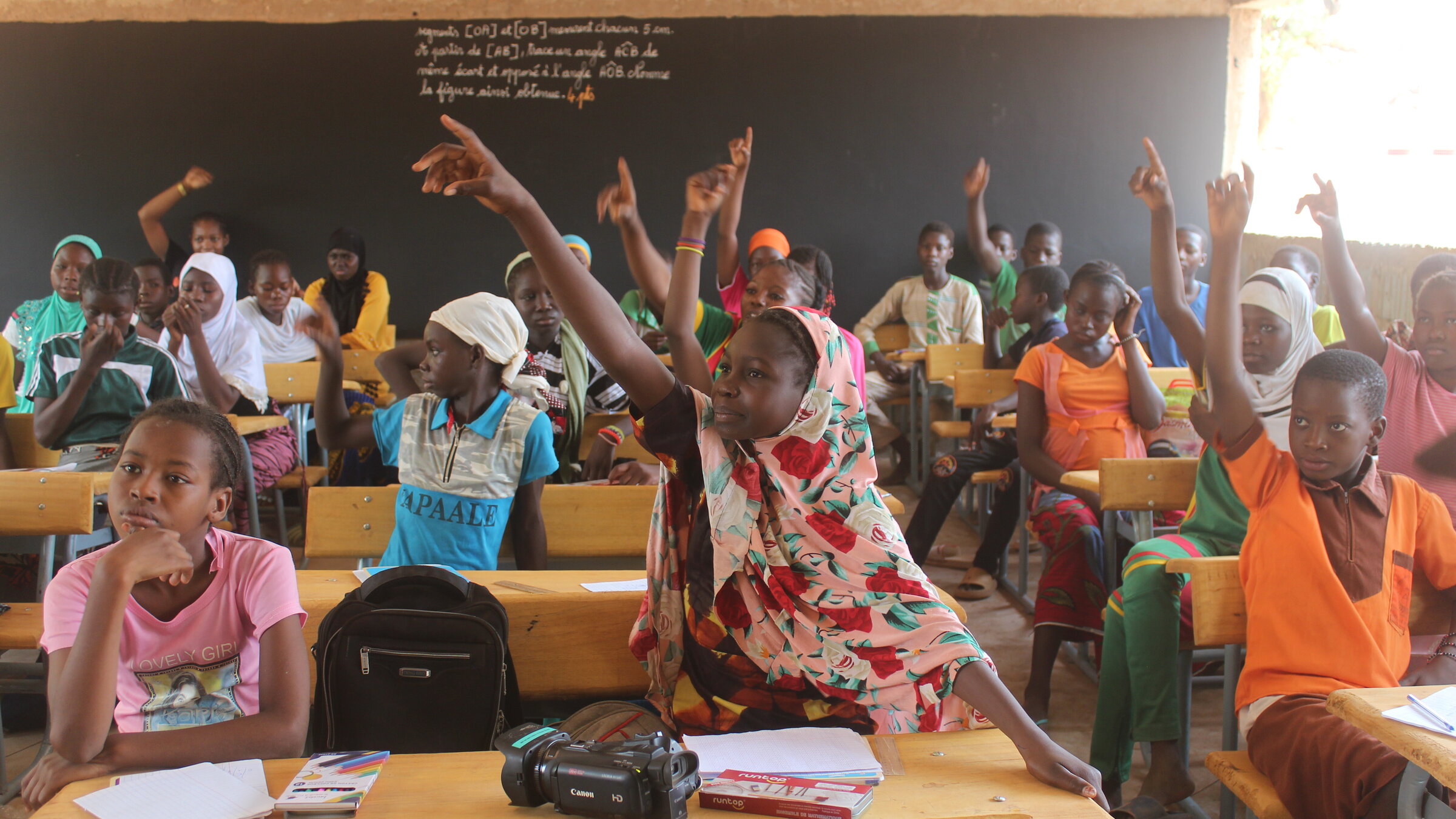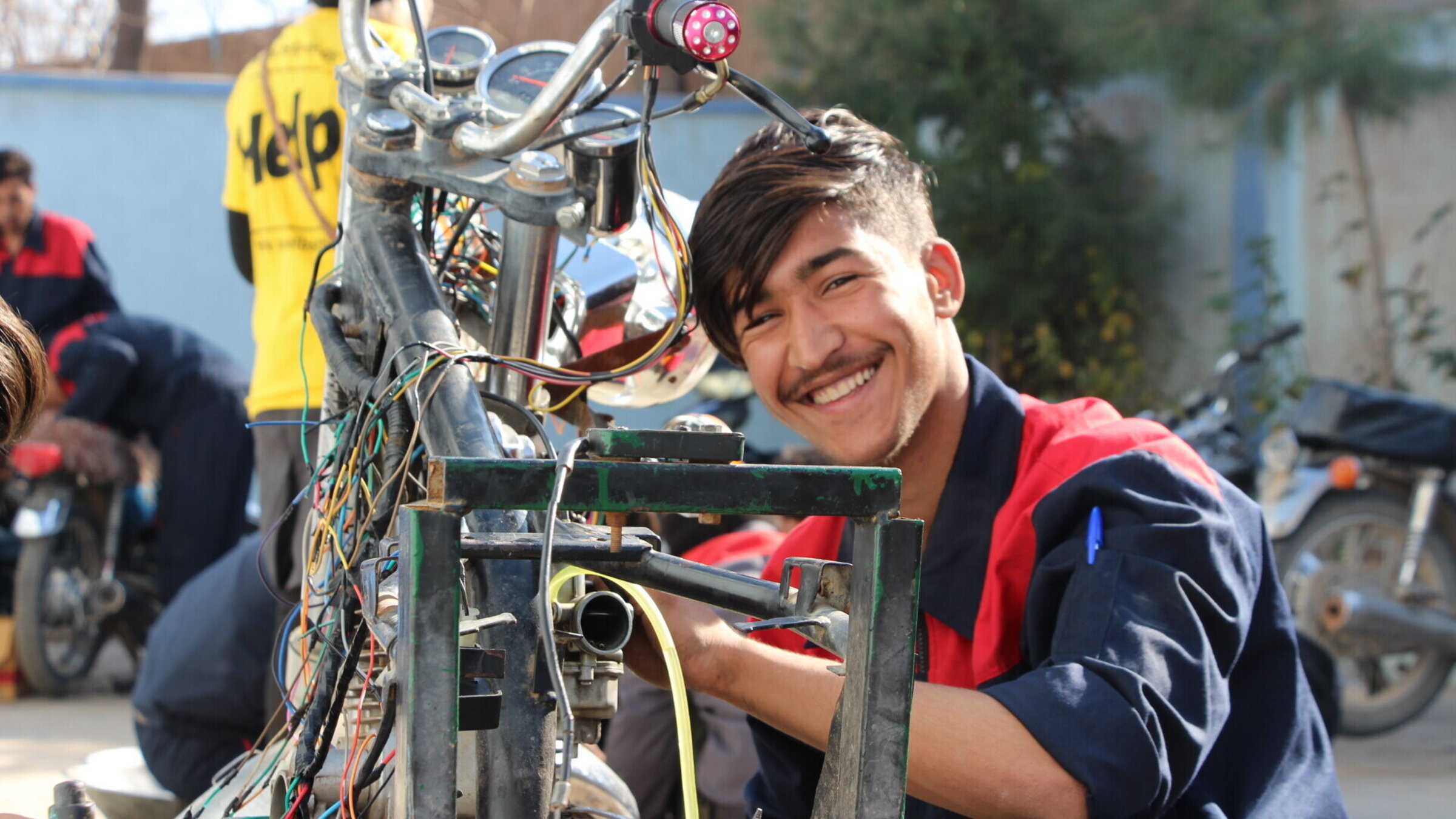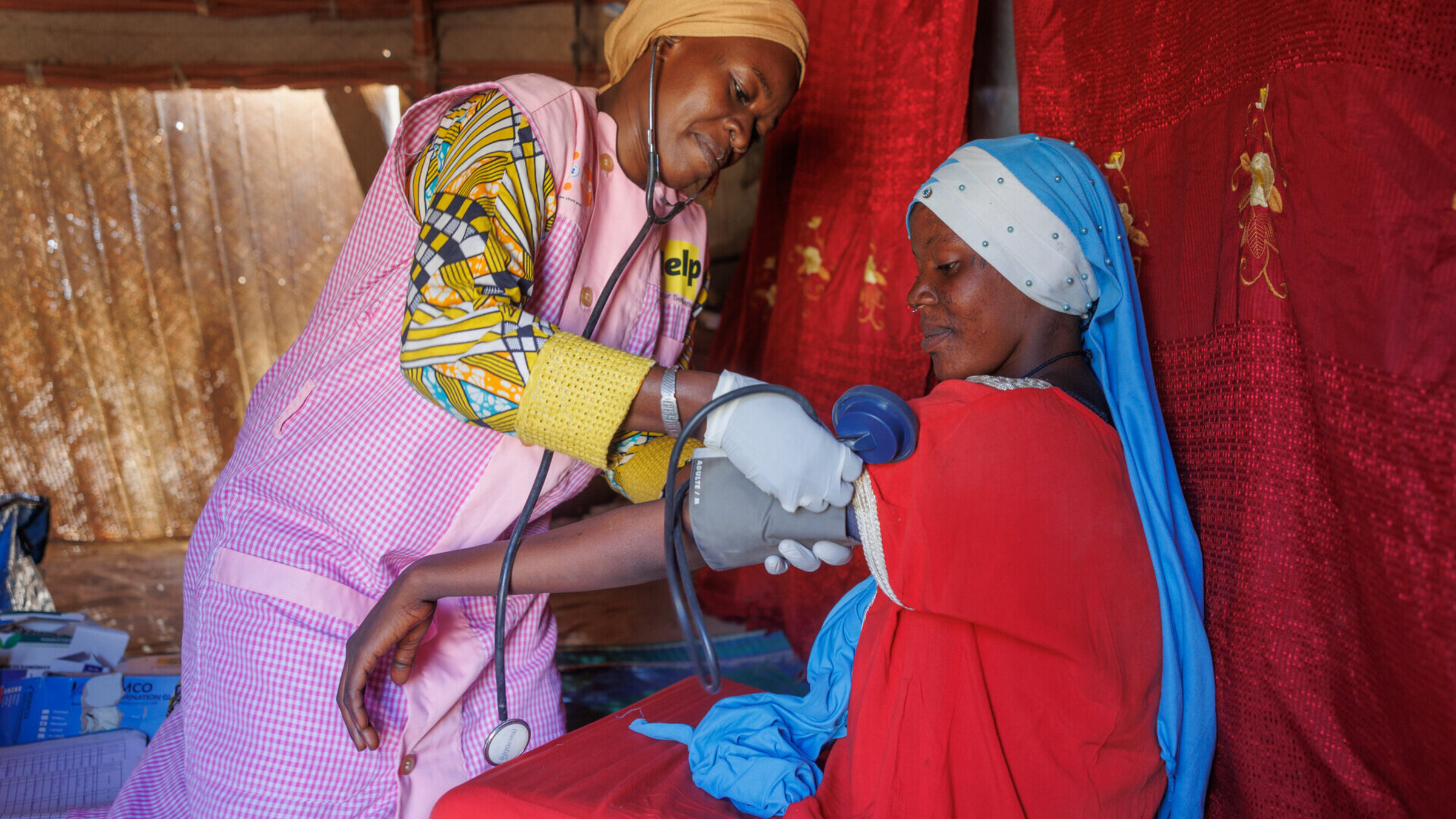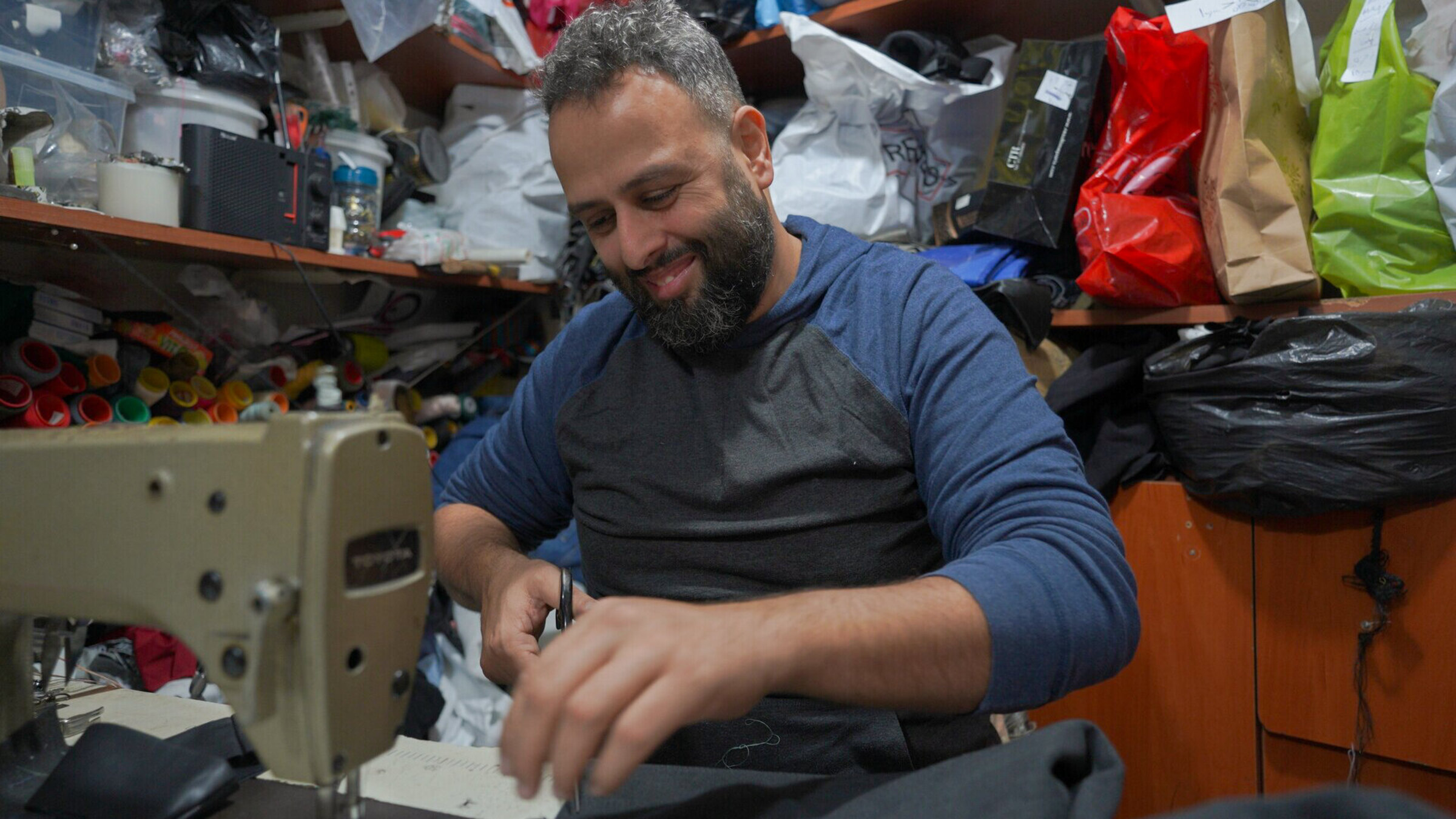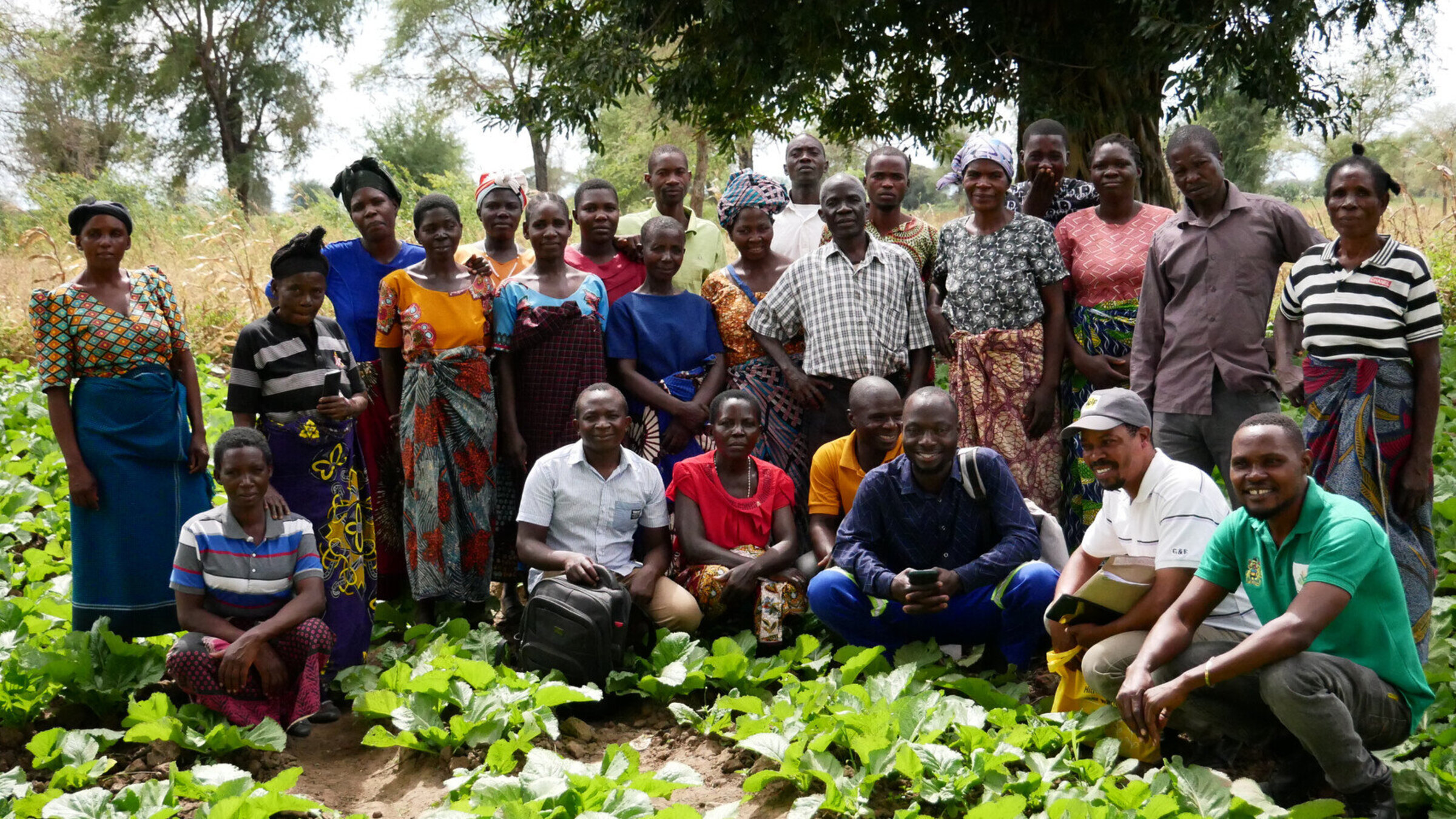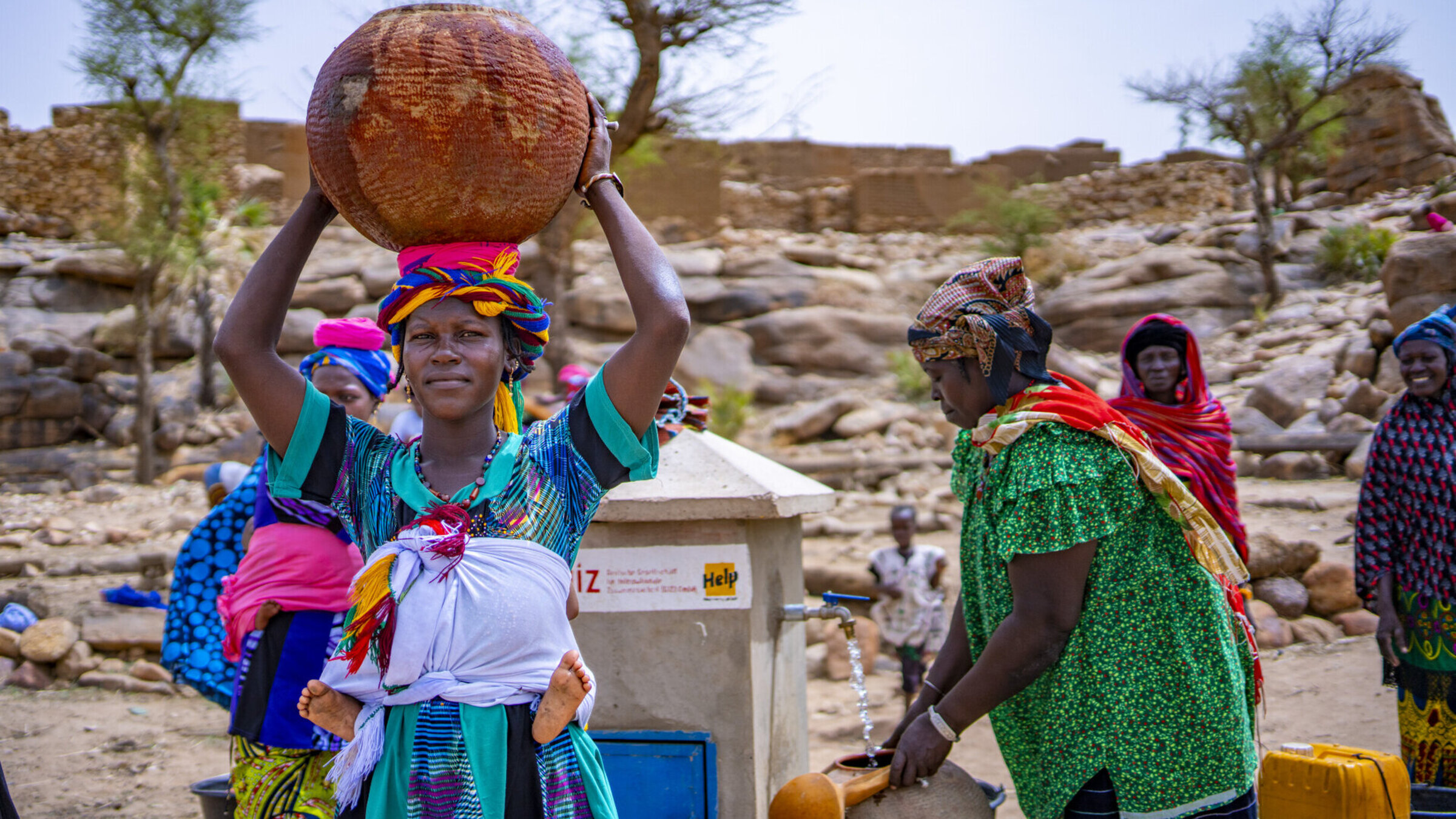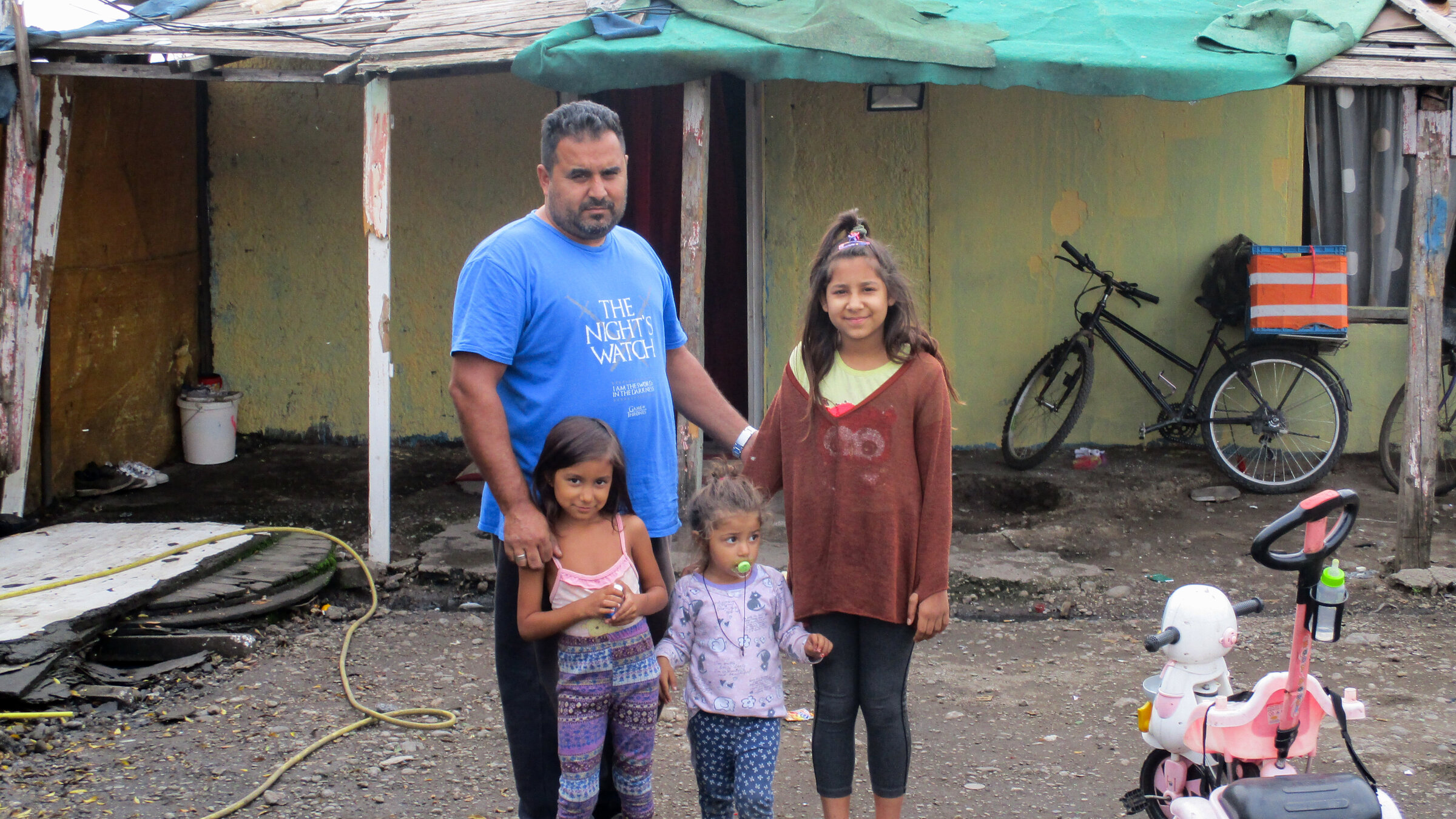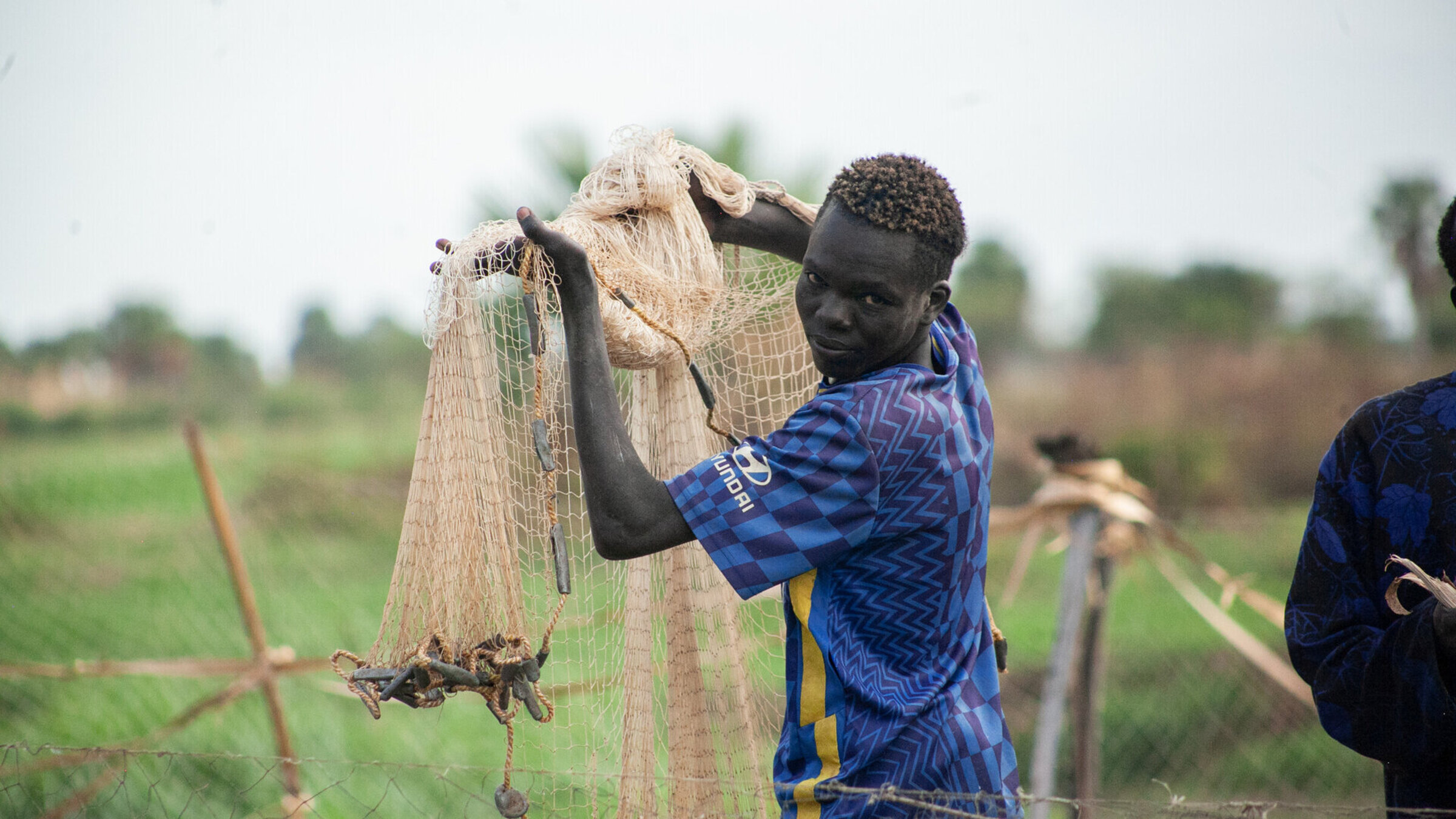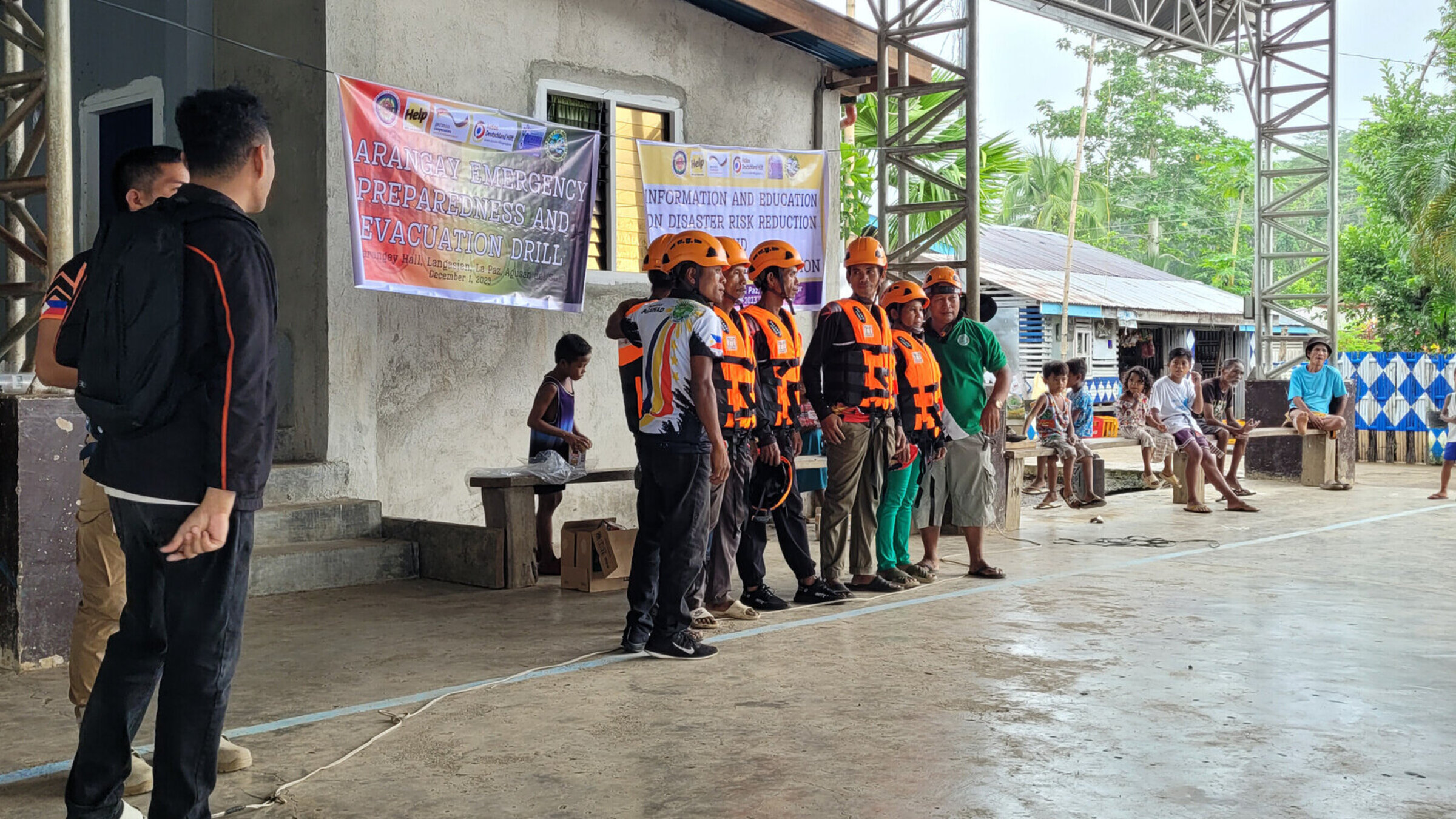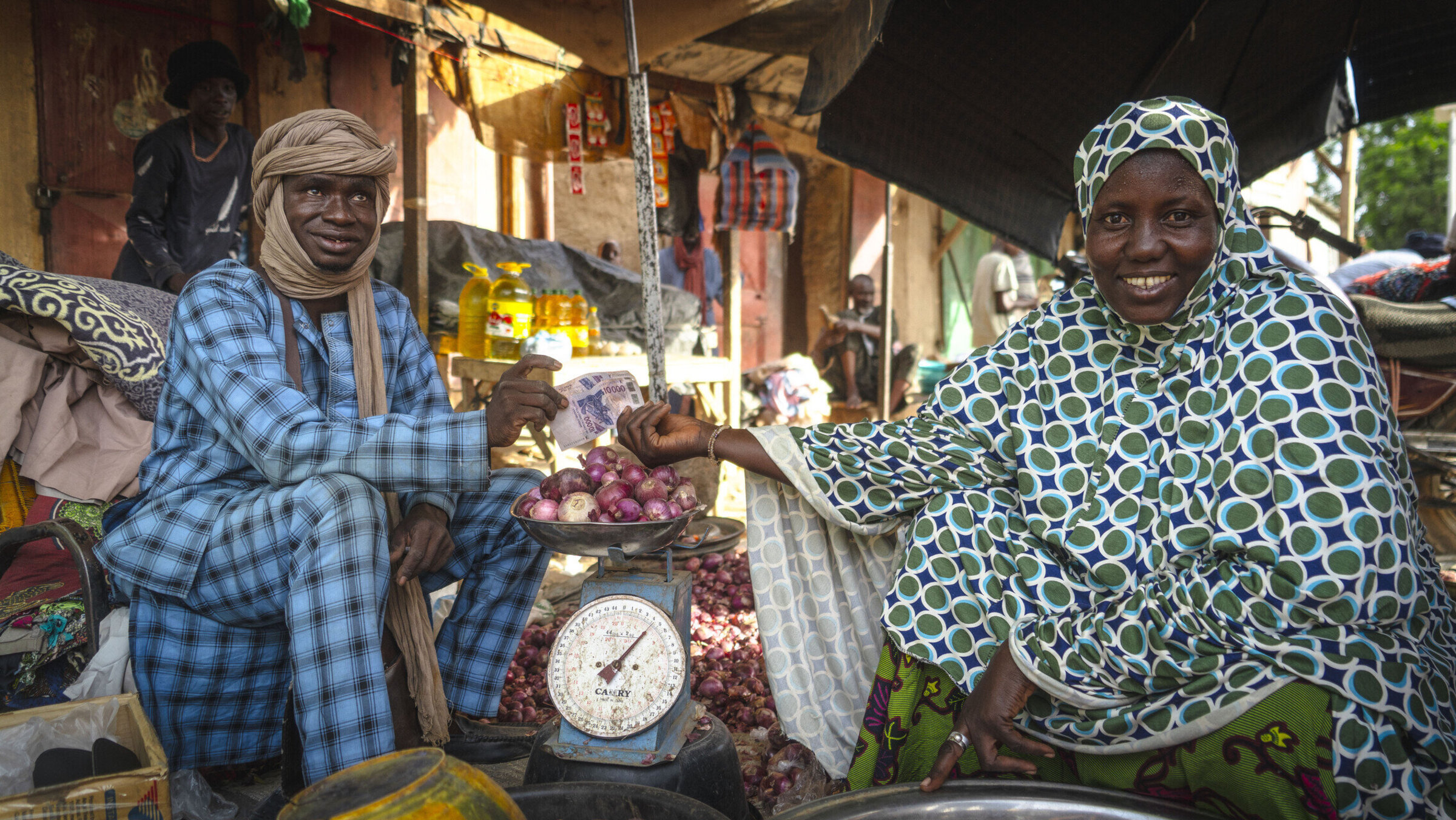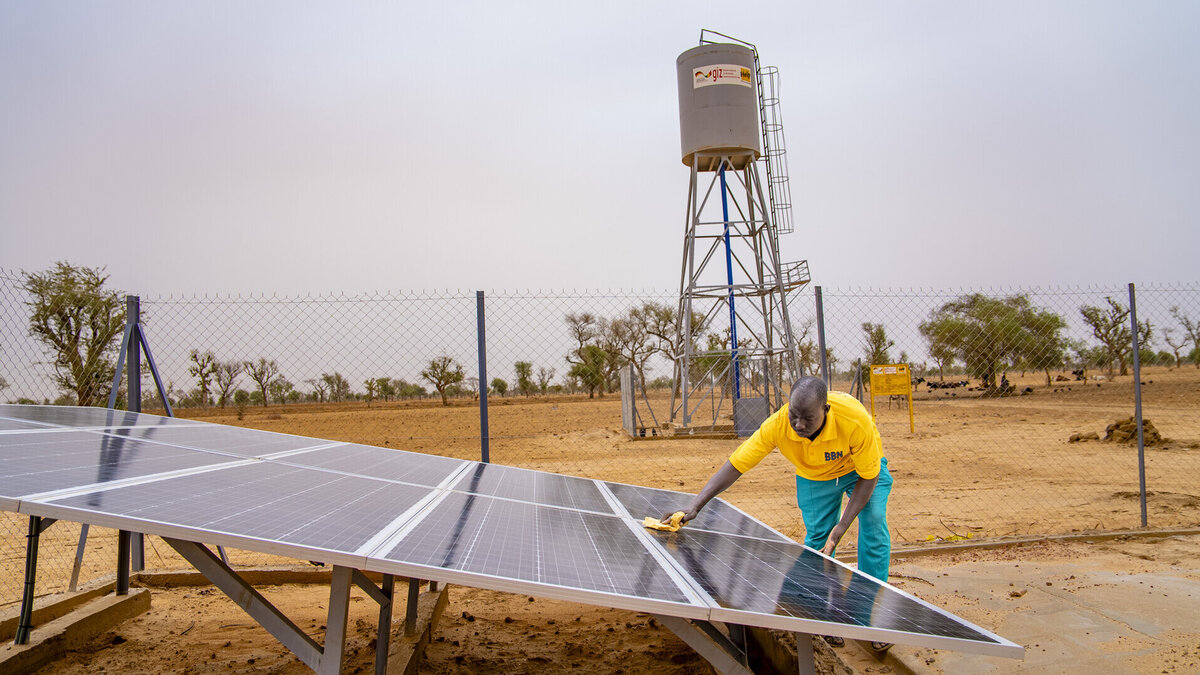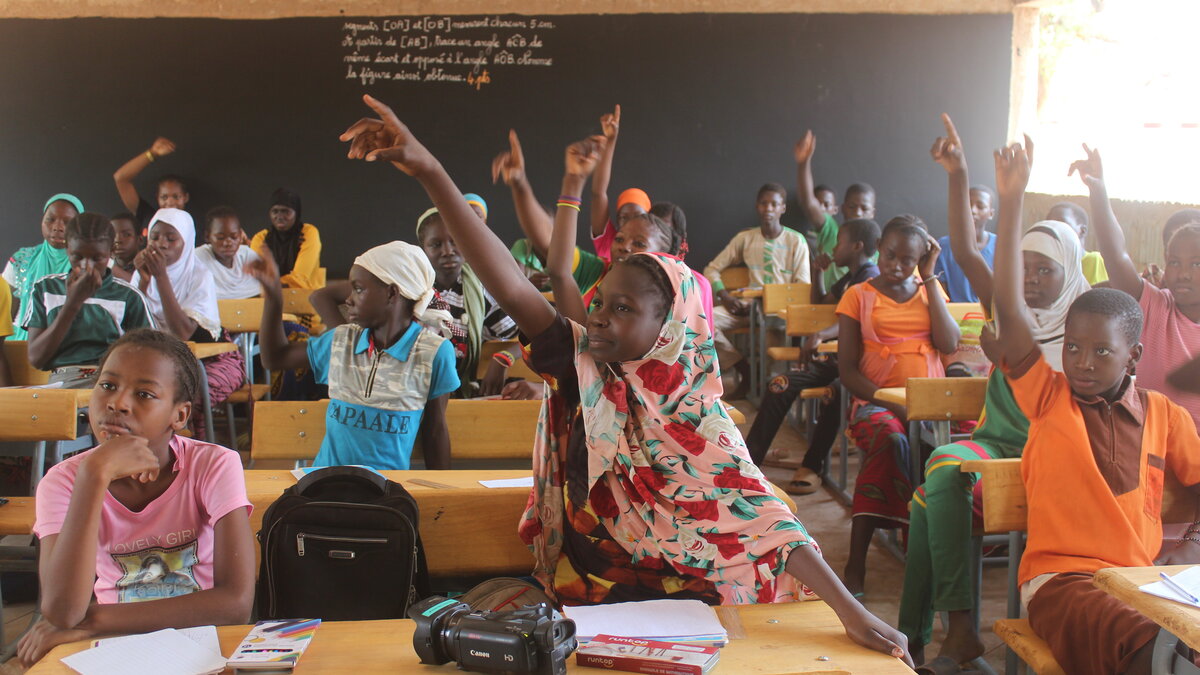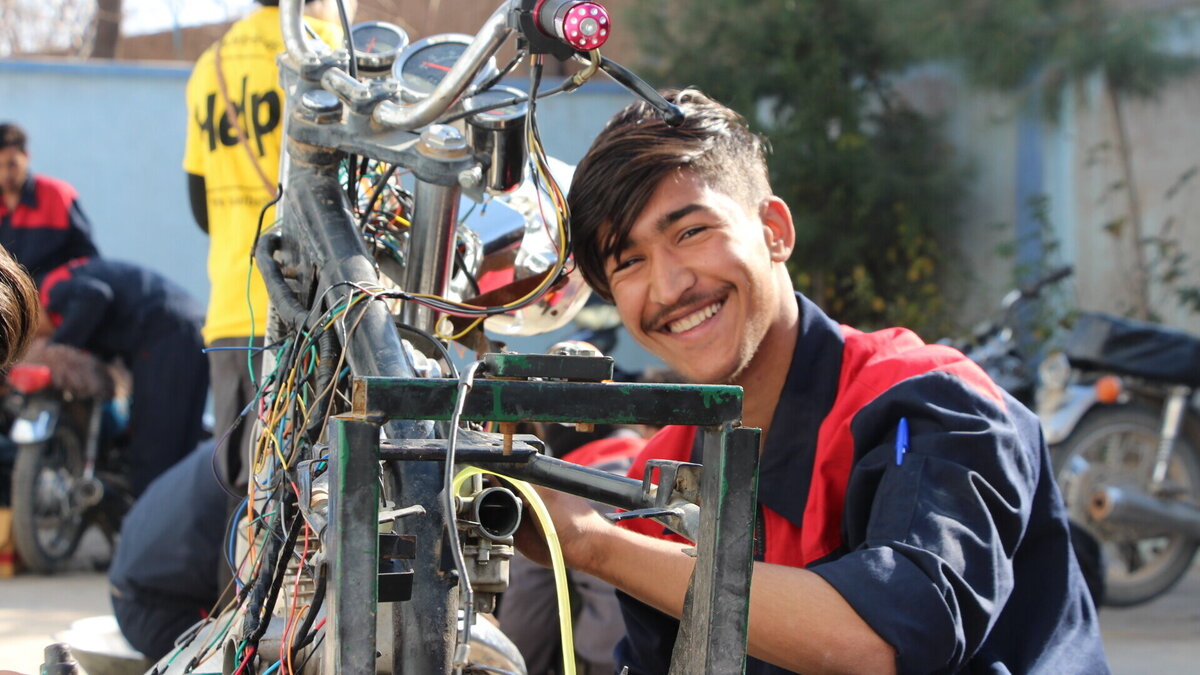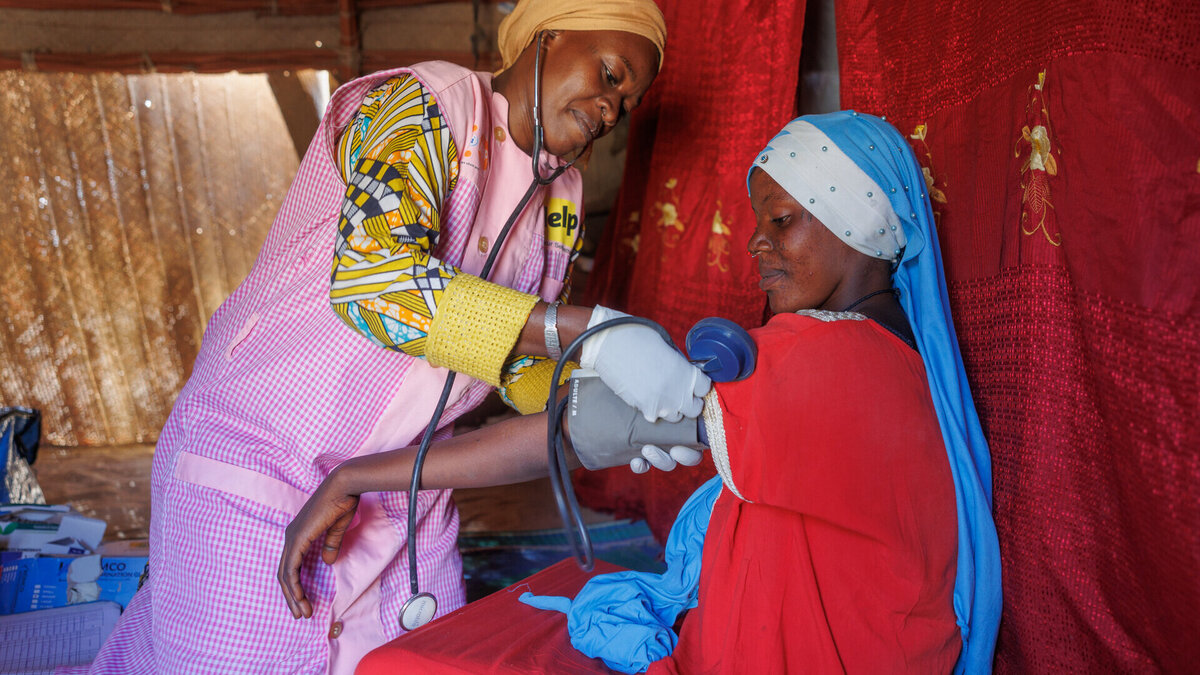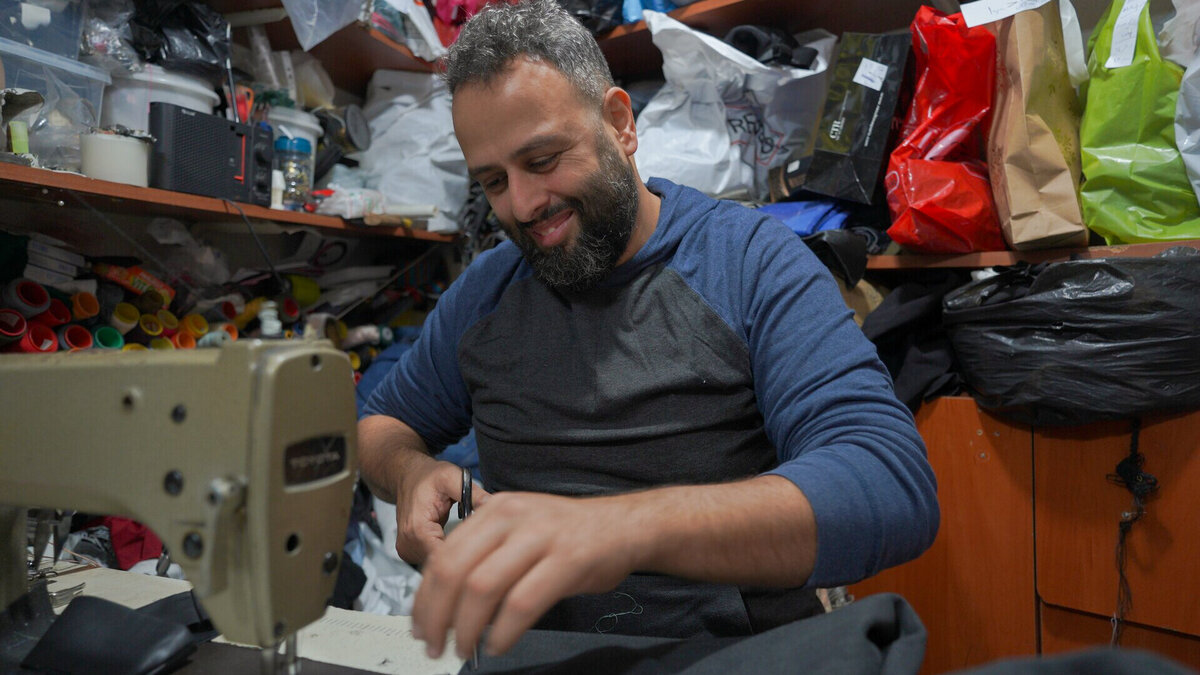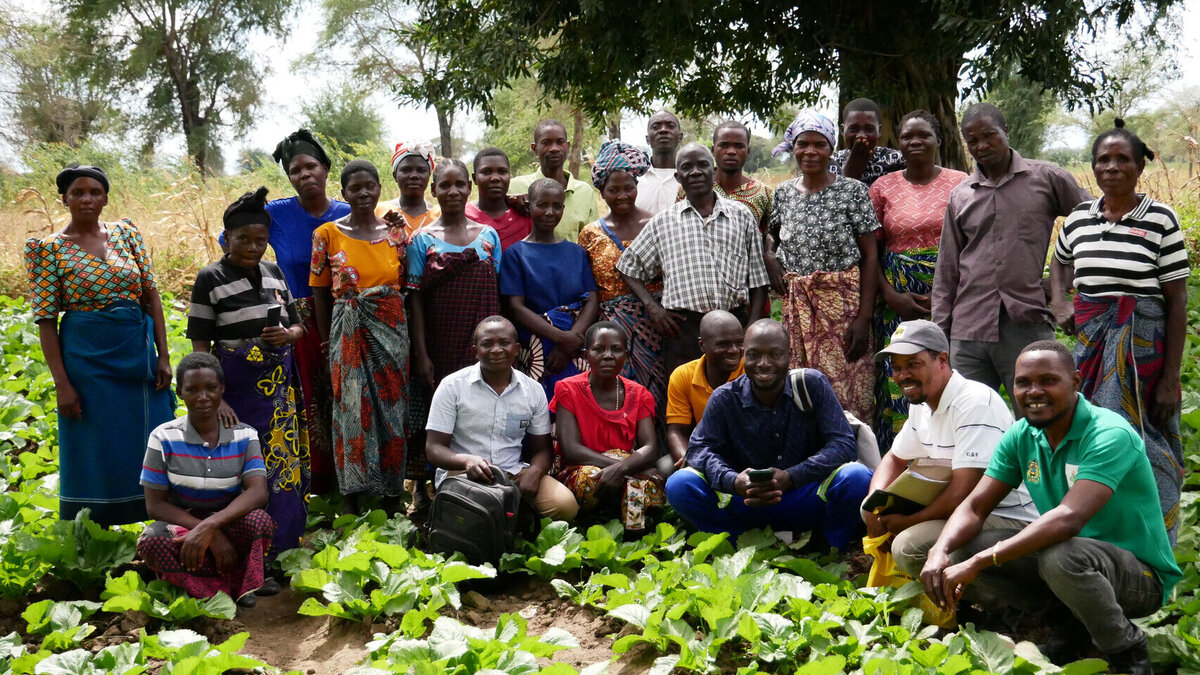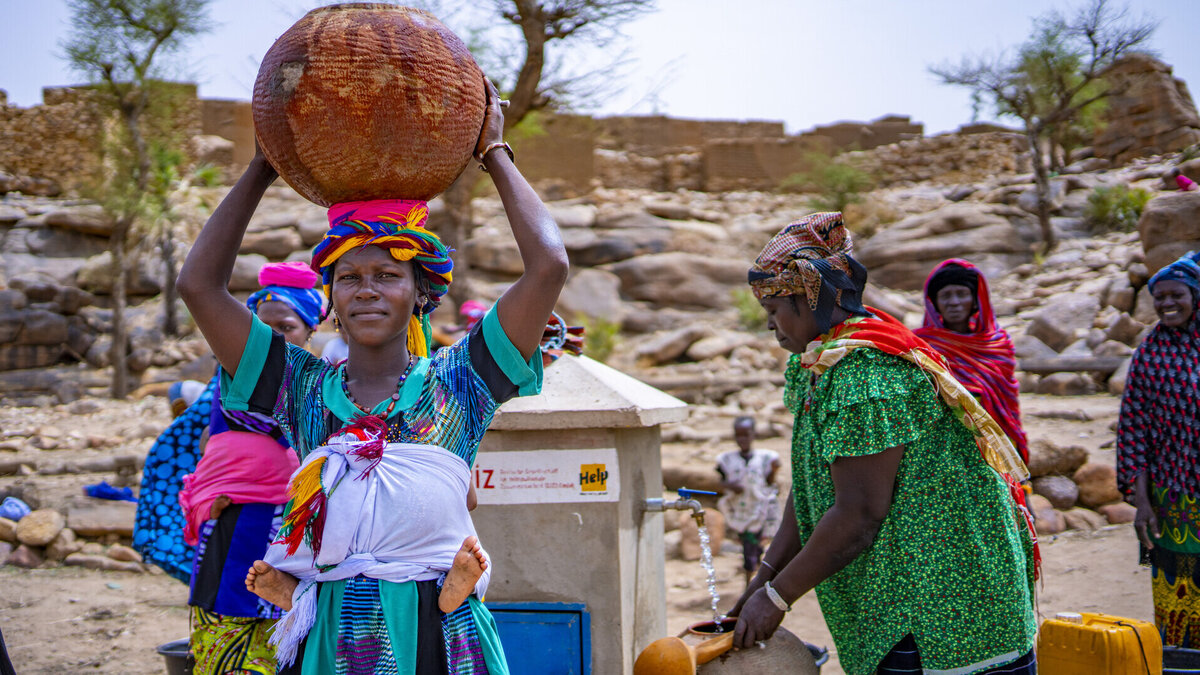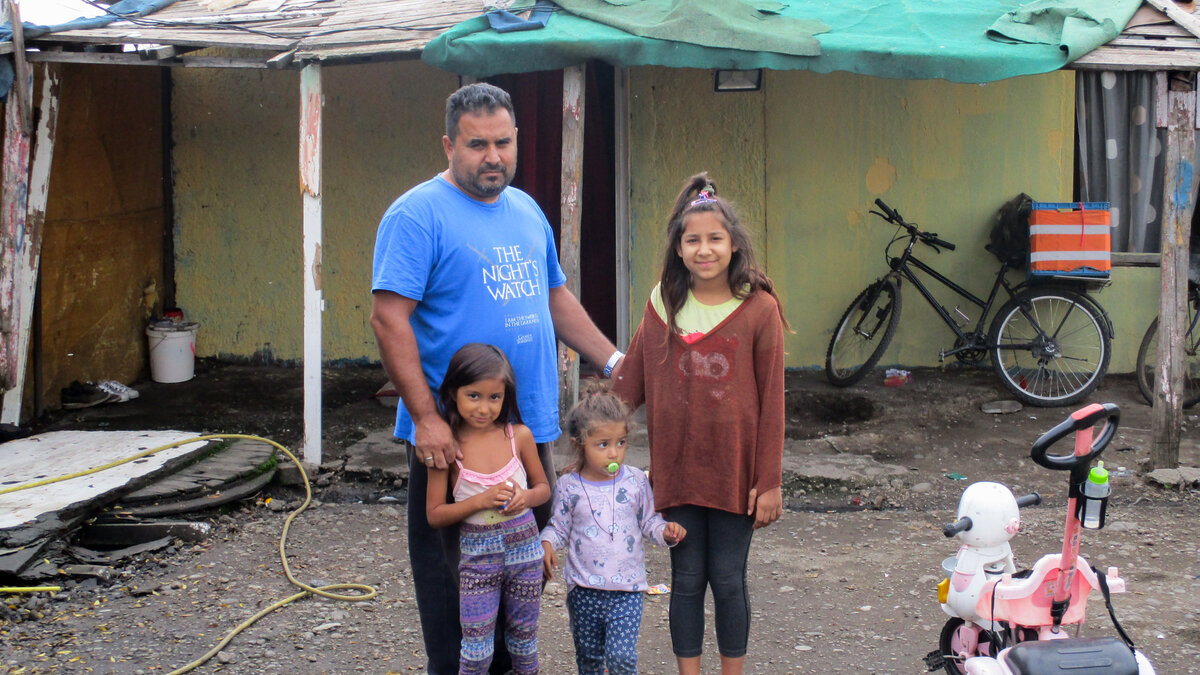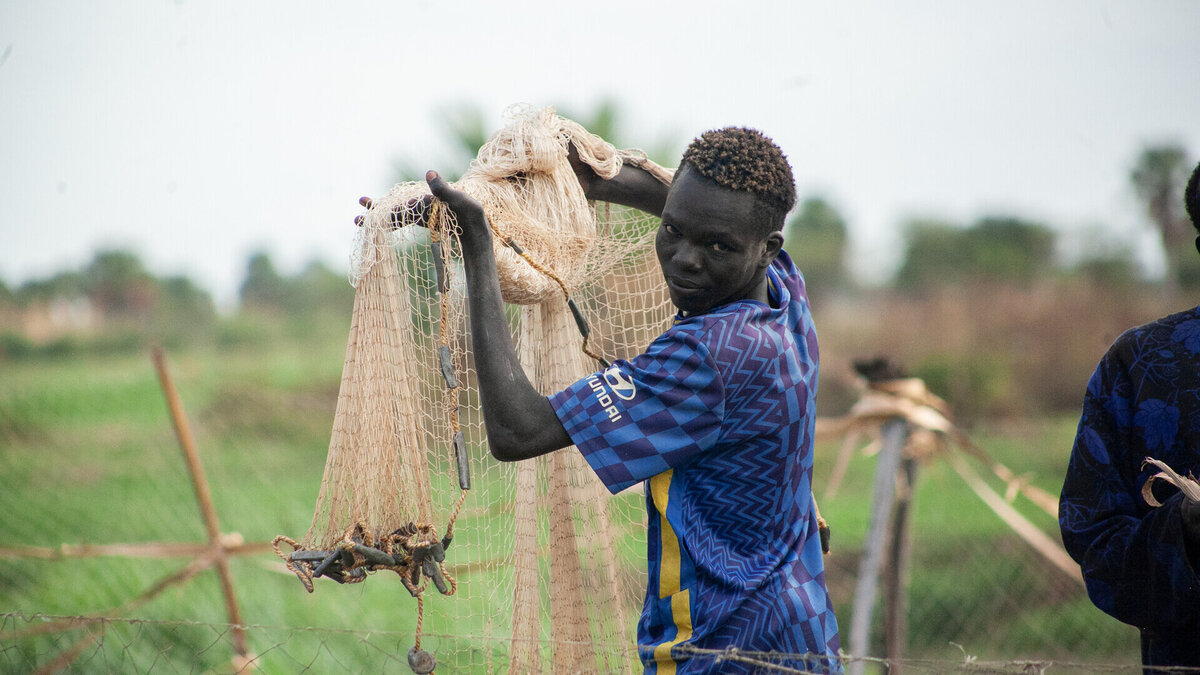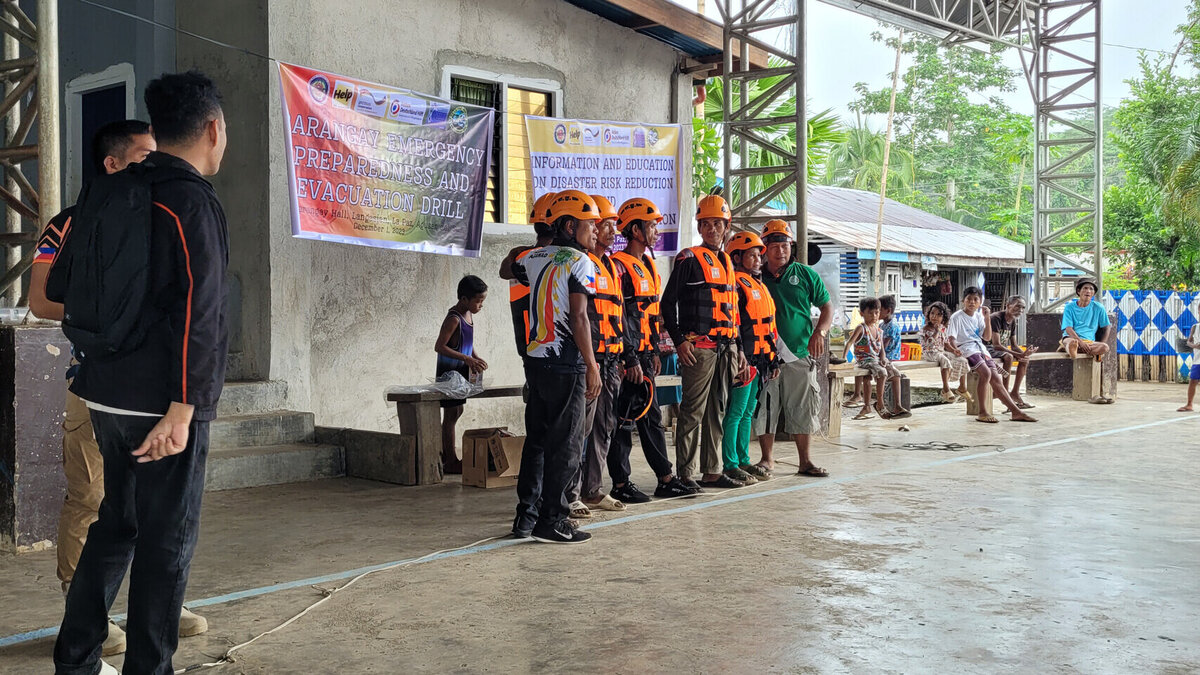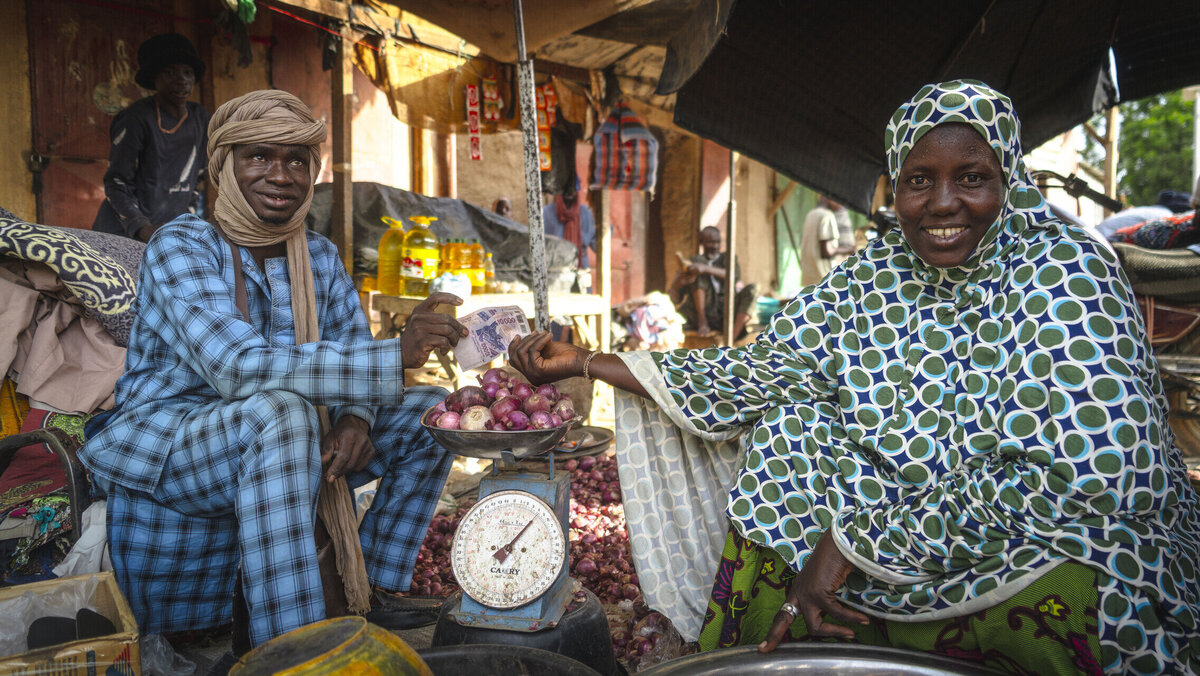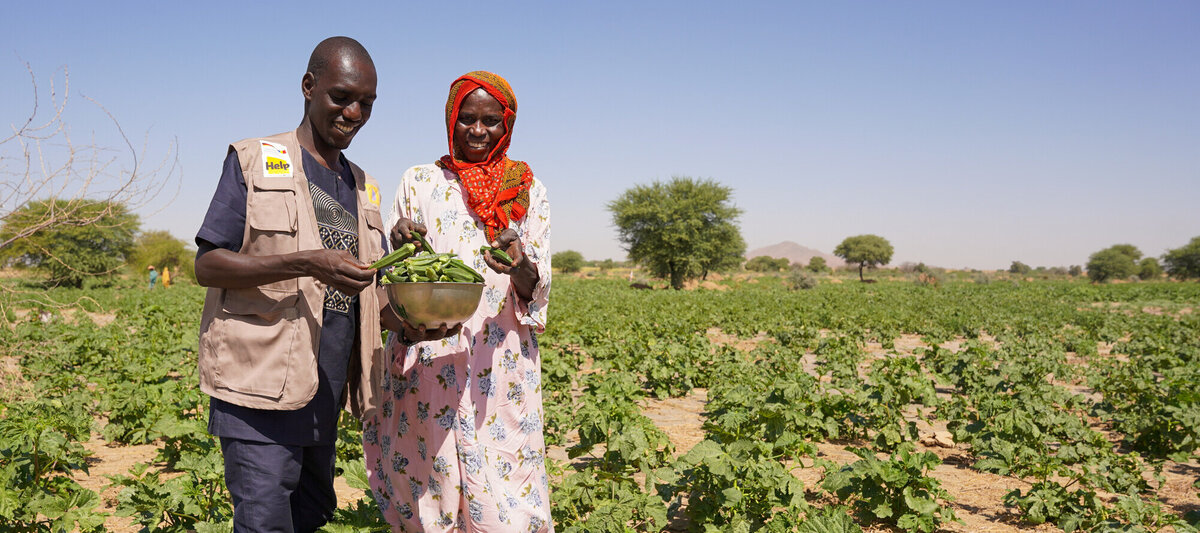Development cooperation
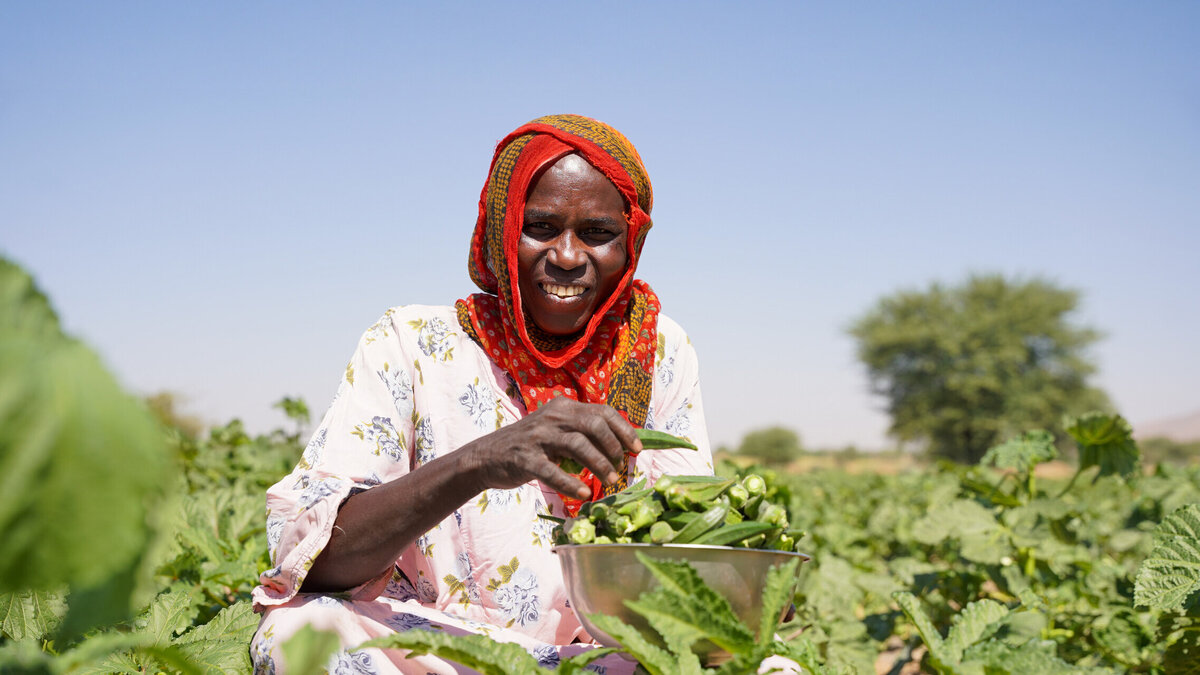
Promoting sustainable development
What does development cooperation actually mean, why is it so important and how does it differ from humanitarian assistance? This page provides a clear overview of the terms, objectives and background to international cooperation based on partnership.
What is development cooperation?
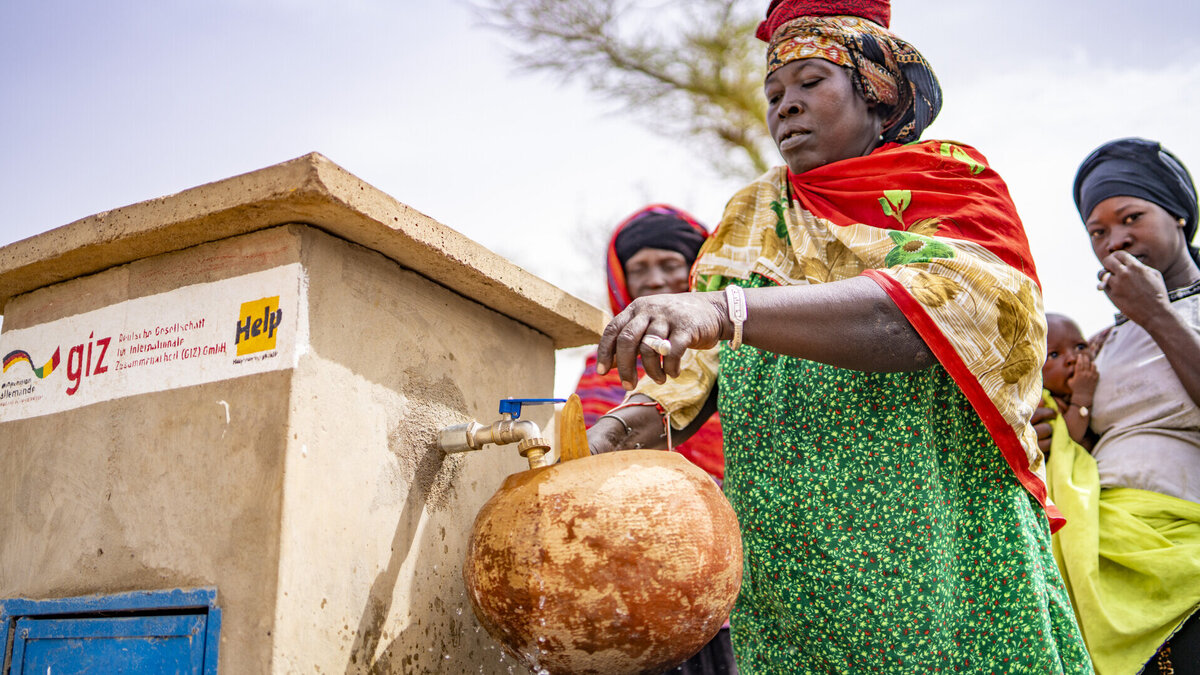
Development cooperation refers to long-term and partnership-based cooperation between countries, organisations and people with the aim of improving living conditions and the economic, social, ecological and political framework conditions in countries of the Global South in a long-term and sustainable manner.
Development cooperation combats poverty and helps to prevent crises by strengthening people's resilience. It is not one-sided aid, but is based on joint action at eye level—with the aim of strengthening structures, creating better living conditions and promoting global justice.
Empowerment instead of dependency
Empowerment is at the heart of development cooperation. Empowering people means supporting them so that they can improve their living conditions on their own in the long term. The focus is not on distributing aid, but on promoting skills, knowledge and local structures. The aim is to avoid dependency, enable sustainable development and overcome poverty.
Why development cooperation is important
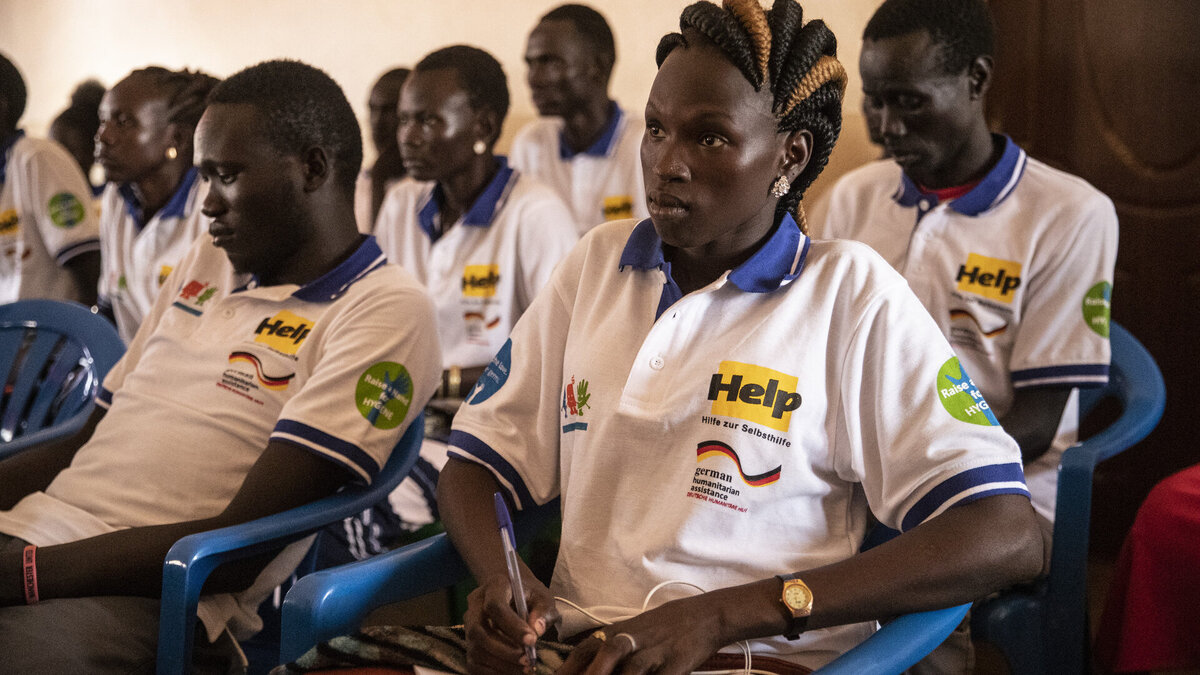
Global challenges such as poverty, hunger, lack of access to education and the consequences of climate change can only be solved together. This is not just about solidarity, but also about shared responsibility. After all, problems such as poverty and hunger are historically and structurally intertwined with the global North—for example through colonialism, unjust trade structures or environmental pollution.
The importance of development cooperation and development policy is reflected in the United Nations' 2030 Agenda: with the 17 Sustainable Development Goals (SDGs), a global action plan was adopted in 2015 with the aim of creating a more peaceful, just and sustainable world by 2030. The SDGs are aimed at everyone: governments, civil society, business, science and every individual.
Why do we no longer speak of ‘development aid’?
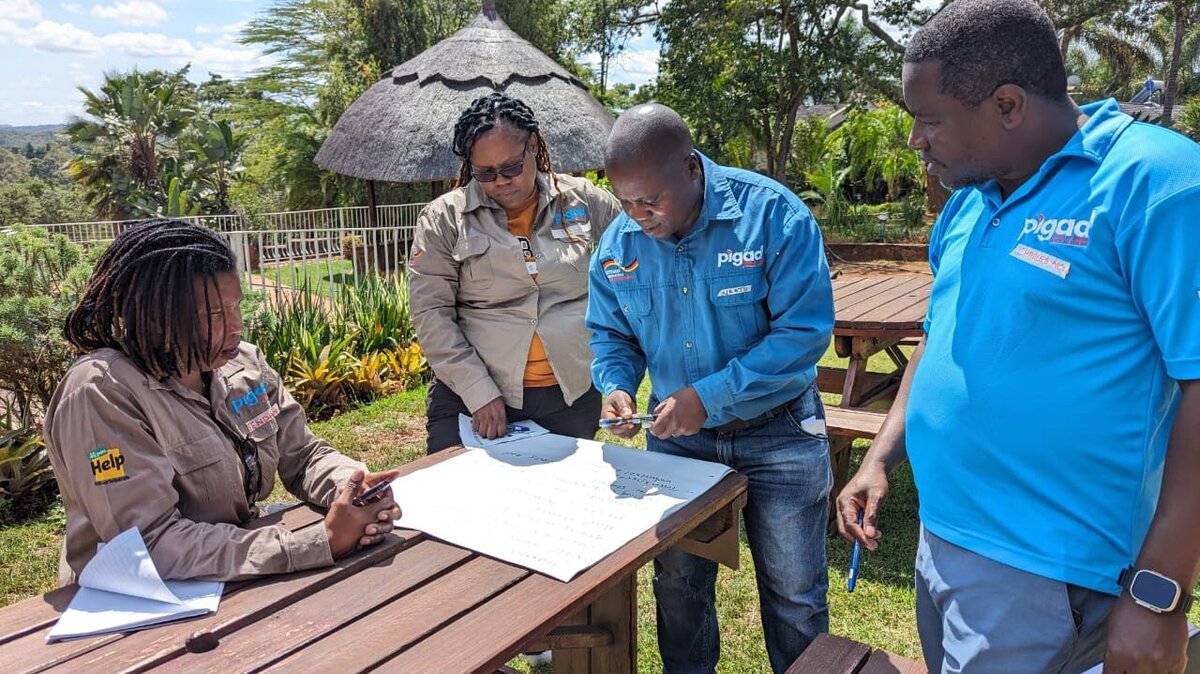
The term ‘development aid’ dates back to the post-war period and was used for a long time to describe development policy measures. Today, however, this term is outdated, as it suggests a one-sided provision of aid from ‘donors’ to ‘aid recipients’ and leaves out the important aspects of partnership, equality and mutual learning.
The term ‘development cooperation’, on the other hand, emphasises the partnership-based nature of international cooperation: organisations such as Help support local organisations, initiatives, governments and the civilian population in the development and implementation of sustainable solutions. In this context, the term localisation is also used.
The term ‘developing countries’ also has negative connotations, as it implies a hierarchy between ‘developed’ and ‘less developed’ countries. Terms such as ‘countries of the Global South’ or ‘partner countries’ are increasingly being used as alternatives, as they counteract this hierarchy.
Development cooperation vs. humanitarian assistance
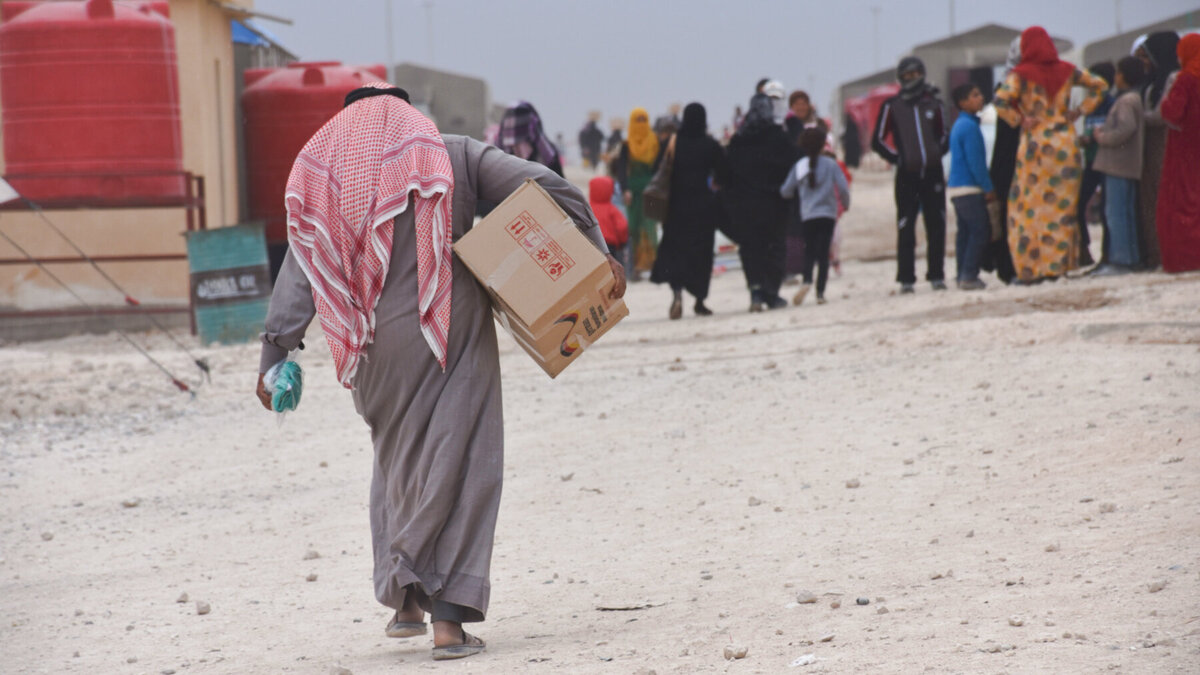
Development cooperation and humanitarian assistance pursue different goals. However, both approaches are important for reducing poverty and need in the long term and complement each other in terms of their impact.
Humanitarian assistance aims to alleviate the suffering of people who are acutely affected by crises, conflicts or disasters in the short term. This emergency assistance can last for several weeks to months. Development cooperation, on the other hand, has a long-term, structure-building effect. It supports people and societies in permanently improving their living conditions - for example by developing education systems, promoting sustainable agriculture or strengthening civil society.
Humanitarian assistance and development cooperation ideally go hand in hand: after acute emergencies, humanitarian assistance often turns into development cooperation, for example to promote sustainable reconstruction or to help those affected to become self-sufficient in the long term.
How Help contributes to development cooperation

In addition to emergency and disaster relief, Help's work focuses on long-term development projects. We always work together with local organisations and initiatives. This is because they have the necessary linguistic and technical expertise and better access to the affected communities. In this way, we are able to respond to people's needs in the best possible way with our projects. Empowerment is always at the heart of our programmes. We provide development cooperation in the following areas:
- Economic development: Help supports local small businesses and provides start-up assistance for the self-employed. This often creates new jobs and enables project participants to provide for themselves and their families in the long term.
- Health: Help improves access to healthcare, for example by operating health centres, sending mobile clinics to rural regions, prevention programmes and vaccination campaigns. We also promote the supply of drinking water in water-scarce regions and are committed to the fight against hunger.
- Education: Help builds and renovates schools in rural regions. We prepare young people for the labour market by promoting vocational qualifications such as apprenticeships and further training.
- Equal rights: Help strengthens the rights of women and girls as well as marginalised groups such as the Roma in Montenegro. We are committed to ensuring that girls in rural regions can go to school, for example by installing sanitary facilities in schools. This enables them to attend classes during their periods.
- Climate and environmental protection: Help promotes sustainable agricultural projects and favours ecological and resource-conserving cultivation and irrigation methods. We build solar-powered drinking water wells, strengthen disaster preparedness in endangered regions and promote recycling measures.
Insights into our development cooperation
FAQ
Development cooperation refers to long-term cooperation between countries, organisations and people. It aims to sustainably improve living conditions in countries of the Global South, strengthen local structures and reduce poverty. This involves not only economic support, but also, for example, education, health, social justice and climate protection. Development cooperation is based on the principle of empowering people and takes place on an equal footing.
Examples of development cooperation include:
- Promoting access to education (e.g. by building schools and financing training programmes)
- Sustainable agricultural projects (e.g. through training for small farmers, water-saving cultivation methods, drought-resistant seeds)
- The expansion of drinking water infrastructure (e.g. through the construction of wells and the use of solar energy)
- Programmes to empower women (e.g. through targeted training programmes)
‘Development aid’ used to be the common term, but is hardly used today because it suggests one-sided aid from ‘donors’ to ‘recipients’. In contrast, development cooperation stands for a partnership of equals. Local people are actively involved and help to shape projects—not as recipients of aid, but as equal partners. The focus is on sustainable solutions rather than short-term support.
Yes, development cooperation is effective because it helps to combat poverty, promote education, strengthen human rights and prevent crises. It creates long-term prospects and supports people in shaping their own future. Well-planned projects help to reduce global inequalities and find joint solutions to global challenges such as climate change, hunger and displacement.
The objectives of development cooperation include combating poverty, promoting education and health, gender equality and sustainable economic growth. Climate protection, peace and global justice are also included. Many of these goals are aligned with the United Nations' 17 Sustainable Development Goals (SDGs), which aim to achieve a better future for all people worldwide.

